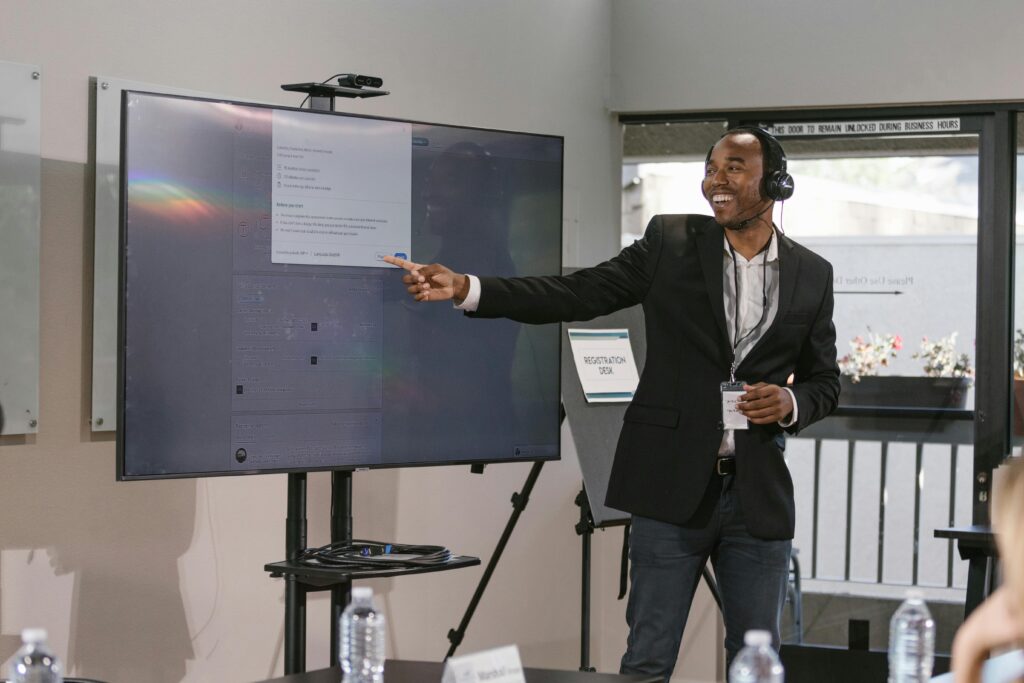
Instructional Materials
Instructional materials—such as readings, videos, and other content—are the everyday tools students engage with to meet learning objectives. While there are countless types of materials you can use, there are

Instructional materials—such as readings, videos, and other content—are the everyday tools students engage with to meet learning objectives. While there are countless types of materials you can use, there are

Updated: 5/8/2019Original publication: 5/11/2017 The purpose of copyright law was never to close down the exchange of ideas; in fact, it exists to encourage creators to share their work without

An institution’s adoption of a master course philosophy involves the development of content for a single version of a course, which schools then duplicate every time they offer the course.

Recent research has shown that online students tend to favor asynchronous communication over synchronous elements. Asynchronous communication typically fits online students’ busier schedules, and it lends itself to a style

When designing or teaching an online course, it’s essential that your objectives, assessments, and instructional materials are aligned. This cohesive structure not only benefits you as an instructor but also

When used appropriately, graphics can be a powerful tool in your online course. In addition to providing aesthetic appeal, graphics provide a visual component to your instructional materials that can

Quizzes are incredibly useful tools in any online course. They provide students with immediate feedback on their learning, build metacognitive skills, enhance motivation, and create a sense of accountability. As

When designing an online course, developers often start with a clear plan for readings and resources that align with assessments. But how should this content be delivered to students? What’s

The term module means different things to different people. For our purposes, modules are containers—organizational units or buckets of content—that you use to organize the components of your course. One

Assessments refer to the activities students complete to demonstrate their competency in relation to predefined learning objectives. Broadly speaking, there are two types of assessments (formative and summative), but regardless

Enhancement is a critical component of an online course’s life cycle. Just as you must maintain a car or home over time, it’s important that you come back to your

When designing online courses, it’s essential to remember that many students juggle work, school, family, and unexpected life events. As a faculty member, you have the power to make choices
Creating and maintaining quality online courses can feel overwhelming especially when you are juggling work demands, deadlines, and student requests.
Online learners today have unprecedented access to information. With AI tutors, YouTube explainers, and massive open courses just a click
What We’re Reading & Watching Conferences Articles Artificial Intelligence Ed Tech Podcasts Reports Webinars Conferences NAFSA 2025 Annual Conference &
Designing effective online courses require more than just content expertise—it calls for intentional strategies that foster engagement, relevance, accessibility, and
Video content has become essential for engaging students, however, not all educational videos are created equal. Research consistently shows that
Live online course design and delivery webinars hosted by the Academic Services and Products team
Developed by Risepoint, Faculty eCommons (FeC) is a social learning ecosystem for faculty across the world to work together to improve online education. FeC contains resources specifically tailored to help online instructors and is maintained by the Academic Services and Products team at Risepoint.
The information provided on Faculty eCommons, including links to third-party websites, does not, and is not intended to, constitute legal advice; instead, all information, content, and materials on this website are for general informational purposes only.
Risepoint
700 North Pearl Street, Suite 600
Dallas, TX 75201
855-593-6050